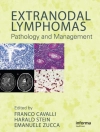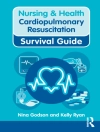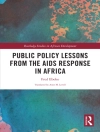This Atlas provides an up-to-date and comprehensive overview of the historical and current perspectives on osteoarthritis, including the pathophysiology and epidemiology of the disease. Written by leading authors in the field of osteoarthritis, the book discusses classification, etiology and risk factors for osteoarthritis, the disease course and determinants of osteoarthritis progression, clinical features and diagnosis as well as imaging methods to assess joint damage. The Atlas of Osteoarthritis concludes with the latest treatment updates including both nonpharmacological and pharmacological treatments, as well as surgical recommendations for patients with the disease. Osteoarthritis is the most common form of joint disease causing joint pain, stiffness, and physical disability among adults. It is an important issue for both the individual and society with its impact on public health continuing to grow as a result of the aging population, the rising prevalence of obesity, and the lack of definitive treatments to prevent or halt the progress of the disease.
Tabella dei contenuti
Introduction: historical and current perspectives on osteoarthritis.- Epidemiology of osteoarthritis.- Pathophysiology of osteoarthritis.- Clinical features and diagnosis of osteoarthritis.- Assessing joint damage in osteoarthritis.- Treatment of osteoarthritis.
Circa l’autore
Nigel Arden, MBBS, FRCP, MSc, MD, is Professor of Rheumatology, Director of the Musculoskeletal Epidemiology Unit and the Oxford Musculoskeletal Bio Bank, he is also Deputy Director of the Oxford Biomedical Research Unit at Oxford University. Professor Arden trained at St Thomas’s Hospital, London, where he also completed four years of research into the genetics of osteoporosis. During this time, he gained an MSc in Epidemiology and an MD. In 1998 he spent six months as Visiting Professor in Epidemiology at the University of San Francisco. In February 2000 he commenced his post as Consultant Rheumatologist at Southampton General Hospital, and Senior Lecturer in Rheumatology at the University of Southampton. He became a Professor of Rheumatic Diseases in Southampton in 2008 and at the University of Oxford in 2011. He is a Member of the National Osteoporosis Society Scientific Advisory Board; he is an International Osteoporosis Foundation Scientific Ambassador and sits on the European League Against Rheumatism (EULAR) Osteoarthritis Guideline Committee and the Osteoarthritis Research Society International (OARSI) Guidelines Committee. He has published over 200 research papers and 5 books. Francisco J. Blanco, MD, Ph D, is Director of Research in the Biomedical Research Center of A Coruña (INIBIC) and Associate Professor of Medicine at the Universidad de Santiago de Compostela, Galicia, Spain. He was a Research Fellow at the University of California San Diego, USA. Currently, Dr Blanco works as a rheumatologist in clinic at the Hospital Universitario A Coruña. His research group is focused on the cellular and molecular mechanisms of osteoarthritis, and on the search of biomarkers useful for diagnosis, prognosis and therapeutic response of rheumatic diseases. He is President of the Research and Training Committee of OARSI. He is a member of the CIBER-BBN (Bioengineer, Biomaterials and Nanomedicine) and the Proteo-Red (Spanish Network of Proteomics). Dr Blanco is Director of the Catedra-Bioiberica at A Coruña University and a member of the Editorial Board of the Osteoarthritis and Cartilage, Arthritis Research and Therapy, Open Arthritis Journal, Open Proteomics Journal and Reumatologia Clínica. Cyrus Cooper MA, DM, FRCP, FFPH, FMed Sci, is Professor of Rheumatology and Director of the Medical Research Council (MRC) Lifecourse Epidemiology Unit; Vice-Dean of the Faculty of Medicine at the University of Southampton; and Professor of Musculoskeletal Science at the University of Oxford. Professor Cooper leads an internationally competitive programme of research into the epidemiology of musculoskeletal disorders, most notably osteoporosis. His key research contributions have been: discovery of the developmental influences which contribute to the risk of osteoporosis and hip fracture in late adulthood; demonstration that maternal vitamin D insufficiency is associated with sub-optimal bone mineral accrual in childhood; characterization of the definition and incidence rates of vertebral fractures; and leadership of large pragmatic randomised controlled trials of calcium and vitamin D supplementation in the elderly as immediate preventative strategies against hip fracture. He is Chairman of the Committee of Scientific Advisors, International Osteoporosis Foundation; Chair of the MRC Population Health Sciences Research Network; Associate Director of Research at the University of Southampton Medical School; and Associate Editor of Osteoporosis International. He has published extensively (over 550 research papers) on osteoporosis and rheumatic disorders and pioneered clinical studies on the developmental origins of peak bone mass. Ali Guermazi, MD, Ph D, is a radiologist with expertise in imaging of musculoskeletal diseases. Currently, he is Professor of Radiology, Section Chief of Musculoskeletal Imaging and Director of the Quantitative Imaging Center at Boston University School of Medicine. He leads a research group focusing on theapplication of magnetic resonance imaging (MRI) to epidemiological studies and musculoskeletal radiology. He has been involved in developing several original and widely-accepted radiological methods to assess osteoarthritis disease risk and progression. He has also contributed to a number of large-scale multicentre osteoarthritis trials, such as the Multicentre Osteoarthritis Study, Health ABC, Framingham Osteoarthritis Study and Osteoarthritis Initiative. Daichi Hayashi , MBBS, Ph D, is a radiologist-in-training and is currently a Research Assistant Professor of Radiology at Boston University School of Medicine. He completed his medical degree at King’s College London School of Medicine, UK, and obtained his doctoral degree from Jikei University School of Medicine, Tokyo, Japan. He has been involved in musculoskeletal research, focusing on osteoarthritis and cartilage imaging for several National Institutes of Health (NIH) and pharmaceutical sponsored studies. His research interest includes MRI of musculoskeletal diseases, with a focus on osteoarthritis. David Hunter, MBBS, Ph D, FRACP, is Professor of Medicine at University of Sydney and Staff Specialist Rheumatologist at Royal North Shore Hospital and North Sydney Orthopaedic and Sports Medicine Centre. He completed his medical degree at the University of New South Wales (UNSW), a fellowship in Rheumatology at the Royal Australian College of Physicians, earned a Masters of Medical Science (Clinical Epidemiology) from the University of Newcastle, a Masters of Sports Medicine from UNSW and a Ph D from the University of Sydney. In his current work, Dr Hunter is investigating a number of key elements in osteoarthritis including the epidemiology of osteoarthritis, genetic epidemiology of osteoarthritis, the role of biomarkers in understanding osteoarthritis aetiopathogenesis, the application of imaging to better understand structure and function with application to both epidemiologic research and clinical trials, theapplication of novel therapies in disease management and heath service system delivery of chronic disease management. He is currently a board member of OARSI. Dr Hunter has over 200 peer reviewed papers published in international journals, numerous book chapters, has co-authored a number of books, including two books on self-management strategies for the lay public. M. Kassim Javaid, MBBS, BMed Sci, MRCP, Ph D, Senior Research Fellow in Metabolic Bone Disease; Honorary Consultant and Rheumatologist at the University of Oxford. Dr Javaid completed his medical training at Charing Cross and Westminster Medical School and specialised in adult rheumatology at the Wessex Deanery. During that time, he also completed a Ph D examining the maternal determinants of intra-uterine bone growth as part of an Arthritis Research Campaign (ARC) Clinical Fellowship at the University of Southampton. He was awarded an ARC travelling fellowship and worked with the osteoarthritis group in University of California San Francisco to study the role of vitamin D and bone in lower limb osteoarthritis. Dr Javaid further extended his research into the role of vitamin D status in musculoskeletal disease, improving outcomes after fragility fracture as well as continuing work looking into the bone phenotypes in osteoarthritis. Balancing clinical and teaching, his direction of research is evermore linking the basic science with the key clinical issues in osteoarthritis and osteoporosis. Francois Rannou MD, Ph D, is Professor of Medicine at Paris Descartes University and Cochin Hospital. He is qualified in rehabilitation and rheumatology. He leads an INSERM (Institut National de la Santé et de la Recherche Médicale) team working in the field of cartilage and intervertebral disc biology. His clinical activity is mainly focussed on osteoarthritis and low back pain from care to randomised controlled trials. Frank W. Roemer, MD, is Co-Director of the Quantitative Imaging Center of the Department of Radiology at Boston University and Section Chief of MRI at the Department of Radiology at Klinikum Augsburg, a major teaching hospital in southern Germany. He holds academic appointments as Associate Professor at Boston University and the University of Erlangen, Germany, and is Associate Editor of Osteoarthritis Cartilage and BMC Musculoskeletal Disorders. Dr Roemer is a German board-certified musculoskeletal radiologist with a strong focus on MRI. His main research interest is imaging of degenerative joint disease, sports imaging and imaging applications in pre-clinical research. Jean-Yves Reginster, MD, Ph D, is Professor and Chairman of Public Health Sciences, Epidemiology, and Health Economics at the University of Liège, where he also heads the Center for Investigation in Bone and Articular Cartilage Metabolism. Professor Reginster trained at the University of Liège in Belgium, and specialised in physical medicine and rehabilitation (Liège), in public health (Nancy, France) and in epidemiology (Ann Arbor, MI, USA). He is President of the European Society for Clinical and Economic Aspects of Osteoporosis and Osteoarthritis, and of the Group for the Respect of Ethics and Excellence in Science. He is the General Secretary of the Belgian Bone Club. He is the co-founder of the International Osteoporosis Foundation where he currently serves on the Executive Committee, Board of Directors, Committee of Scientific Advisors and as Chairman of the Committee of National Sciences. Professor Reginster serves on the Editorial Boards of numerous journals, such as Osteoporosis International, Bone and Calcified Tissue International. He has written more than 600 scientific articles in the most distinguished journals (New England Journal of Medicine, Lancet, Journal of Clinical Investigation, Journal of Endocrinology and Metabolism) and more than 80 books or book chapters. He is particularly interested in metabolic bone diseases, in the epidemiology, prevention, and treatment ofpostmenopausal osteoporosis and osteoarthritis, in all aspects of pharmacoepidemiology, public health and health economics, quality of life and in the methodology of clinical trials.












